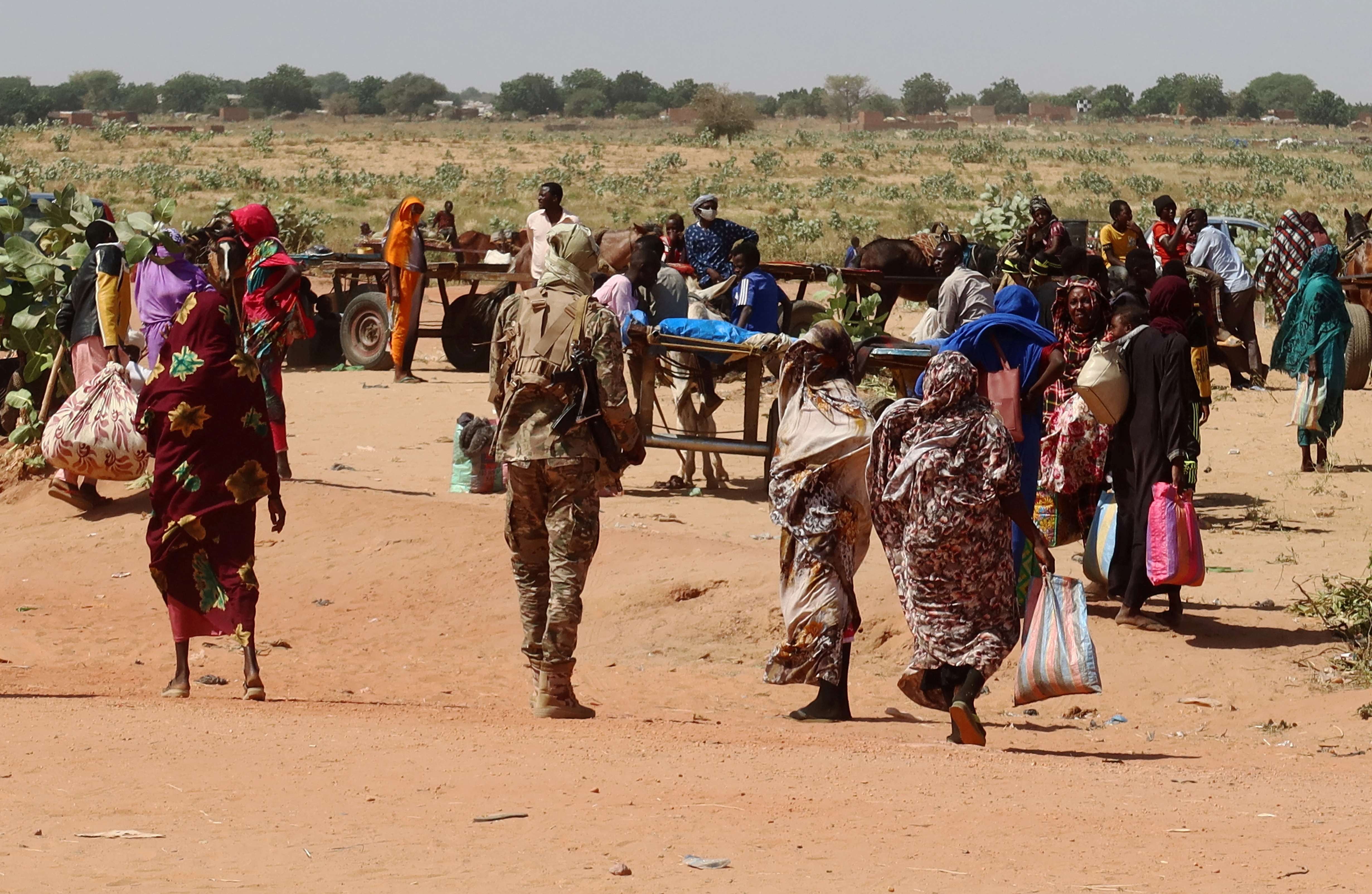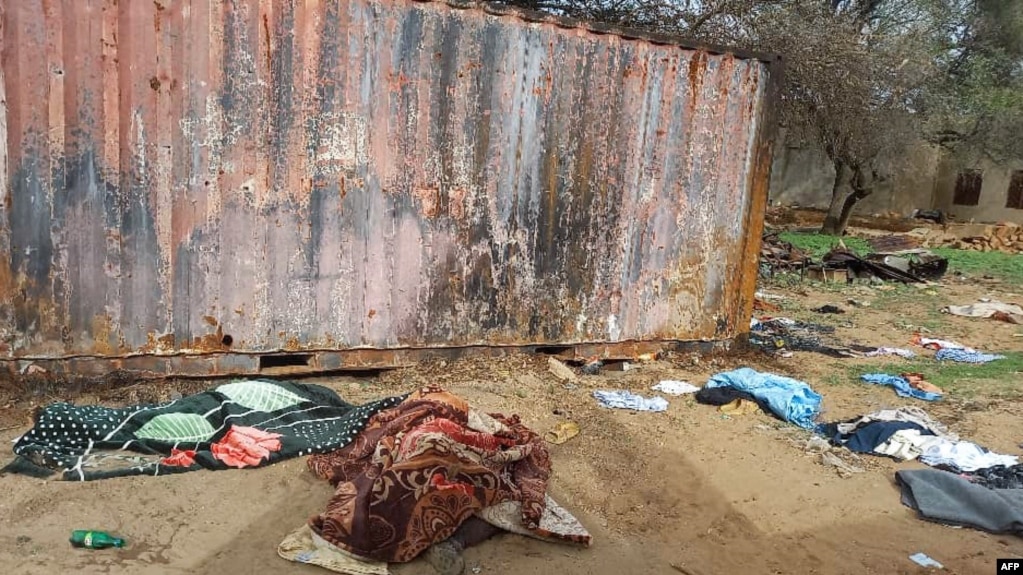Atrocity Alert: Sudan's Darfur Attacks Redux
"All under the false pretext of targeting rebels [government forces and Janjaweed militias began attacking non-Arab villages, burning entire villages, engaging in systematic killings, extensive rape and sexual violence].""These attacks were also designed to destroy these groups' [Ethnic Fur, Masalit and Zaghawa communities] means of survival and essential infrastructure.""[The 153 states that have signed the Geneva Convention must] take immediate action to end any complicity in the form of support for the RSF [Rapid Support Forces] and use all means reasonable available to prevent and halt the genocide."Report, Raoul Wallenberg Centre for Human Rights
 |
Families escaping Ardamata in West Darfur cross into Adre, Chad, after a wave of ethnic violence, November 7, 2023. Survivors recounted executions and looting in Ardamata, which they said were carried out by RSF and allied Arab militias. 2023 REUTERS/El Tayeb Siddig |
In
Darfur, Sudan, 80 different tribes and ethnic groups live traditional
lives as farmers and pastoralists. In the last number of decades,
tensions have strained the non-Arab farming communities' relations
between Arab herders. Land is at a premium, leaving the farmers and the
herders at odds between grazing cattle and farming the land. Government
bodies appointed by the Sudanese government in the mid-1980s favoured
the rights of the Arab communities, leading to mass violence, when Arab
herders attacked non-Arab, Black farming communities.
Primary
groups targeted by the current situation, with the rebirth of mass
killings, displacement, rape and land grabs are the Masalit, Fur,
Zaghawa, Bargo, Tunjor and other non-Arab tribes in the West, South,
North East, and Central Darfur States. Eventually non-Arab groups --
Masalit, Fur and Zaghawa -- responded by forming their own militias, the
Sudan Liberation Movement and the Justice and Equality Movement, both
labelled rebels by the government of Sudan.
In
the late 1980s and beyond fighting between the Arab and non-Arab
communities intensified. Chaos reigned when President Omar al-Bashi
aligned the country's military with the Janjaweed militia (Arab horsemen) who
persecuted and conducted murderous raids on Darfur's farming
communities. Between 2003 and 2005, 300,000 people were murdered and
countless others were made homeless."Counter-insurgency"
campaigns resulted between 2015 and 2016. By 2019 President Omar
al-Bashir was overthrown after having been indicted for genocide, war
crimes and crimes against humanity at the International Criminal Court.
The
feared and hated Janjaweed since transformed into the Rapid Support
Forces, now in conflict with the Sudanese Armed Forces in a power
struggle. The conflict, seemingly ignored by a world bored with constant
African Continent strife has caused 17.7 million people to face food
insecurity, while another 25 million are left in need of humanitarian
assistance. In a city in West Darfur, El Geneina, the RSF rounded up
Masalit men for execution, where they were held in detention without
food or water.
According
to the UN Security Council Panel of Experts on the Sudan, between
10,000 and 15,000 people were killed in that attack. The Darfur Bar
Association described the situation in El Geneina as a "full-scale genocide".
The Raoul Wallenberg Centre report cited genocidal and dehumanizing
language: Arab militiamen killing boys as young as six months, claiming "the boys will grow up and they will kill us. ... so we must destroy them now".
 |
| Bodies are strewn near houses in the West Darfur capital El Geneina, June 16, 2023. Up to 15,000 people were killed in the city last year in ethnic violence, according to a United Nations report seen by Reuters |
Labels: Arab Janjaweed, Darfur Sudan, Farming Communities, Human Rights, Mass Murder, Non-Arab Pastoralists, Rapid Support Forces, Starvation, Sudanese Armed Forces

<< Home